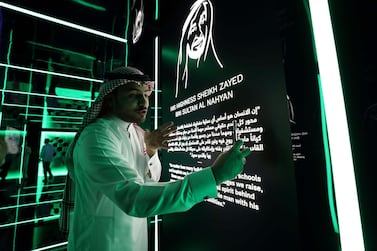Last week, the UAE announced the launch of the Mohammed bin Zayed University for Artificial Intelligence (MBZUAI), a graduate-level institution in Abu Dhabi. The world’s first university of its kind, which is accepting applications for September 2020, aims to develop a workforce ready to navigate a rapidly changing, technologically advancing world. This announcement is indicative of how our economies and workforce are changing, and the UAE’s continuous effort to stay ahead of the curve.
A 2016 study by Stanford University exploring what our lives will be like in 2030 with the influence of artificial intelligence (AI), found that almost all areas will be impacted by this technology.
Our career paths are continuously evolving, and if our skills don’t evolve, we will fall behind. For instance, when I graduated from university ten years ago with a degree in mass communication, I didn’t know that most of what I would be working on in my company nowadays — from creating 10-second social media videos and exploring the digital culture to working with social influencers — would be things we didn’t even explore in the classroom.
If I hadn’t personally followed an ongoing learning approach, I wouldn’t have been able to sustain my business. The same thing applies to my team. If I hadn’t worked with my team, and encouraged them to develop their skills, and made continuous learning a part of our company culture, they wouldn’t have been able to handle our new clients’ requests, or even sustain their position in this field.
As employers, we have a responsibility to not just adopt the latest technology, but to ensure that our team members are ready and equipped for this changing career landscape. The growing spread of AI and automation will mean that certain tasks will be replaced by machines. A 2017 report by McKinsey & Company found that by 2030, approximately 800 million workers around the world could be replaced by robots. As scary as that may sound to many, this won’t mean that we will be out of jobs entirely. What this will more likely mean is that the advancement of technology will create new jobs, and change the nature of certain tasks. For example, the time spent by employees to process certain types of data, or other manual tasks, could now be spent on other areas such as creative projects and building strategy.
I witness this first-hand in my company. In the past, much of the social media analysis had to be done by a team member, requiring a few hours of their time - from looking at data to putting it in a chart for our clients to see. Now, there are programmes dedicated specifically for that, generating a report with detailed analysis of social media activity. Though that task has been replaced by technology, it means that my team member’s time can be utilised elsewhere.
But in order for us, employers, to retain our best team members, we need to prepare them for the future. As automation will slowly be taking over many areas of our lives, soft skills will become more important. Emotional intelligence, critical thinking, creativity and empathy are areas that artificial intelligence is lacking, which makes these skills more valuable. These are the skills that we need to focus on when we think of employee development.
Broader and more fluid career development programmes, instead of a narrow or a focused one, will help employees develop a range of soft skills. It’s also critical to implement a learning culture in the workplace, where employees’ skills are constantly evaluated, to identify skill gaps and areas for development. Learning opportunities should also include and focus on emotional intelligence and empathy. Employees should also be encouraged to self-learn and self-develop instead of waiting for their managers to offer those opportunities to them. There are many convenient options nowadays like webinars and free online courses to learn in the comfort of our homes.
Focusing on your employee’s skills development will mean that your company and team are ready and equipped to take on tomorrow’s changing career roles.
Manar Al Hinai is an award-winning Emirati journalist and entrepreneur, who manages her marketing and communications company in Abu Dhabi







